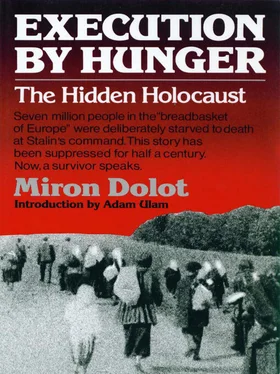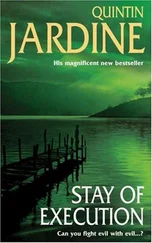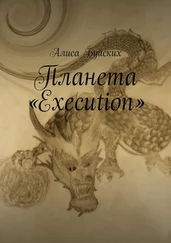Some of them would be mugged or even murdered during the night; others would be picked up by the militiamen on night duty, loaded onto trucks, taken out beyond the city limits, and dumped somewhere to fend for themselves, with strict orders not to return to the city. Yet many of them would return in spite of the danger; others would dejectedly go back to their villages, resigning themselves to death; some were in such a weakened state that they died where the militia had dumped them.
Many of the doomed tried to save themselves by going to the railroad stations and railroad tracks. Those who had something valuable to sell came there with their wares in the hopes of finding buyers among the travelers. Others came empty handed, just to beg for a piece of bread or a morsel of food. But one could also still find a few bold souls who came to the station intending to travel to some more distant cities, usually in Russia, where there was no famine. However, such an undertaking was a very difficult and risky one. Train tickets were sold only to those who had written permission from the collective farm. It stated that its bearer was permitted to travel to a certain destination. The GPU men and the militiamen were constantly checking travelers’ documents. Even those who were returning from Russia to Ukraine with legal travel documents were searched. Any food found in their baggage was confiscated.
By this time our village was in economic ruin. Poverty was universal. We had never been rich, it is true, but economically, we had always been completely self-sufficient and had never gone hungry for so long. Now starving, we were facing the spring of 1932 with great anxiety for there was no hope of relief from the outside. Deaths from starvation became daily occurrences. There was always some burial in the village cemetery. One could see strange funeral processions: children pulling homemade handwagons with the bodies of their dead parents in them or the parents carting the bodies of their children. There were no coffins; no burial ceremonies performed by priests. The bodies of the starved were just deposited in a large common grave, one upon the other; that was all there was to it. Individual graves were not allowed, even if someone were still physically able to dig one. This strange ordinance originated with Comrade Thousander who was supposed to have said: “There is nothing wrong with a common grave,” implying that the Soviet man who lives and works in a collective can also be buried in a collective grave.
Looking back to those events now, it seems to me that I lived in some kind of a wicked fantasy world. All the events which I witnessed and experienced then and which I am now describing, seem unreal to me because of their cruelty and unspeakable horror. It is simply too difficult to associate all those happenings with real life in a normal human society.
I shall never forget the celebration of May Day in our village in 1932. May Day is an important Communist holiday, and the village administration would not miss it. On this day the Spring Sowing Campaign was to be launched officially, even though spring sowing and planting had been going on since the beginning of April.
Our collective farm specialized in growing potatoes, tomatoes, cabbage, onions, and other vegetables which required much care and many workers. On the eve of May Day, to attract attention to the launching of the Spring Campaign, the collective farm administration made a special announcement: A hot meal was to be distributed from an outdoor kitchen in the village square to the participants of the celebration, which was to take place in the morning. After the celebration and their meal, the collective farmers were to go straight to their field work.
I came to the square with our school. It was an established custom that the village school, which in my village was a nine-year school, was the focal point of such celebrations. We had to sing and recite poems, play games, and show everyone that we were very happy. It took quite an effort on our teacher’s part to explain to us each time how to look happy, and it was particularly difficult for us to imitate “happy youngsters” this year. Many of our schoolmates had already died, and many others were sick from starvation and could not participate in the celebration. Nevertheless, nobody could ignore the Communist holidays. We students had to participate like everyone else, and we had to smile and laugh whether we wanted to or not.
On the way to the square, we had to sing the songs we had learned for this occasion. We also carried a huge red flag and the usual Communist slogans such as “Long Live the Communist Party,” “Long Live the Soviet Regime!” and “We thank the Communist Party for Our Happy and Prosperous Life!”
The first thing I noticed upon reaching the square were some kettles hanging over the fire. Around these kettles was a cordon of militia deputies guarding them like some treasure. All of the militia were armed with shotguns. The village administrators stood close to the kettles, which were being tended by several women. The huge crowds of hungry participants were kept at some distance from the kettles by a row of tractors.
The scene I saw in the square is impossible to forget. There were literally hundreds of emaciated people staring at one focal point: the kettles steaming with hot food. Some of the onlookers stood on their own, others were so weak that they had to be supported by relatives or friends. Many others could only lie on the ground. The crowds were strangely quiet and orderly but tense with expectation, waiting for something to happen.
When Comrade Thousander mounted a tractor to begin the celebration with one of his usual harangues, all the protruding eyes that had been fixed on the steaming kettles and the smoke from the fires turned to him. He started by congratulating all of us on the holiday. Then he reminded us that in celebrating May Day, we must (and he emphasized must ) show solidarity with all proletarians, whatever that meant. At the end of his long speech, he announced that with the celebration of the May Day, the collective farm began its Spring Sowing Campaign. The best way to celebrate these two great patriotic events, he admonished, was to take part in the socialist competition for speedy fulfillment of one’s work norms in the field.
By this time, his hungry audience began growing impatient. The hundreds of pairs of eyes had lost interest in him long ago, and again kept their hungry stare on the kettles. They could wait no longer. Very slowly but persistently, the multitude began to advance forward, getting closer to the kettles.
“And now”—Comrade Thousander was shouting his finale to his hungry audience—“now, thanks to our dear Communist Party, we are able to celebrate these two events with our traditional hot buckwheat porridge!!!”
The hungry and ragged crowd did not wait for him to finish his last words. Men, women, children, all who could, rushed to the kettles, shouting, shrieking, cursing. Hundreds of feet trampled over those who were weaker or who lay on the ground, and tried to crawl to the kettles.
But no one managed to get to them. At the moment it seemed that the threatening crowd was about to overrun the area with the kettles, a shot rang out, then another…. This however did not stop the stampede. Then a desperate man mounted one of the tractors and started shouting something. A third shot sounded. The man on the tractor wavered a second and then fell. This third fatal warning signal caught the attention of the crowd, and the tumult subsided.
Comrade Thousander, who had stood on the tractor speechless and helpless during the uproar, now regained his composure. Surveying the crowd contemptuously from his high position, he shouted angrily, “Stop behaving like wild animals!”
Читать дальше












